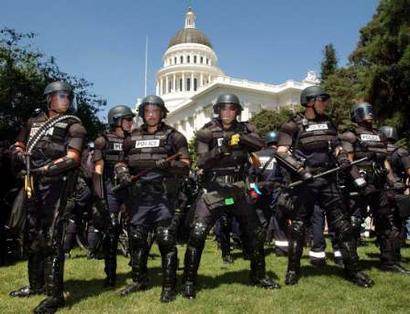Senate Votes to Give F.D.A. Sweeping New Powers
nytimes
WASHINGTON, May 9 — By a vote of 93 to 1, the Senate passed a bill this afternoon that gives the Food and Drug Administration sweeping new power to police drug safety, order changes in drug labels, and restrict the use and distribution of medicines found to pose serious risks to consumers.
The bill calls for a fundamental change in the philosophy and operations of the F.D.A., requiring the agency to focus on the entire life cycle of a drug — not just the years prior to its approval, but also the experience of patients who later take it.
Senators said the bill was a response to a widespread loss of confidence in the ability of the F.D.A. to protect consumers against the dangers of drugs like Vioxx, a popular painkiller withdrawn from the market in 2004. The bill would carry out many recommendations from the National Academy of Sciences and appears broadly acceptable to the House. The Bush administration has not actively opposed the measure and many drug manufacturers support it.
The bill is widely seen as “must pass” legislation because it renews authority for the government to collect fees from drug companies to speed the review of their products. Without action by Congress, the authority would expire Sept. 30.
“This legislation will make a major difference for families in America, ensuring the safety of our prescription drug system,” said the chief sponsor of the bill, Senator Edward M. Kennedy, Democrat of Massachusetts. “We will also have safer food for families and for pets.”
Senator Michael B. Enzi, Republican of Wyoming, said the bill was the “most comprehensive drug safety overhaul in more than a decade.”
The no vote was cast by Senator Bernard Sanders, the Vermont independent who is an outspoken critic of the pharmaceutical industry.
Work on the bill began long before Democrats took control of Congress. At a time when bills often pass or fail on party-line votes, the Senate drug bill was a triumph of bipartisan cooperation. Republicans were full partners in drafting it.
The bill sidestepped a multibillion-dollar question: how to give consumers access to lower-cost copies of biotechnology drugs that now cost tens or hundreds of thousands of dollars a year. But lawmakers from both parties said they intended to create a procedure for federal approval of such copycat drugs, sometimes called generic biologics.
Just minutes before passage of the bill this afternoon, the Senate voted, 64 to 30, to double the maximum civil fine that could be imposed on a drug company for violations of a drug safety plan approved by the F.D.A. The maximum fine would now be $2 million.
“If fines are nothing more than the cost of doing business, you cannot deter bad behavior,” said Senator Charles E. Grassley, Republican of Iowa, who proposed the increase.
Under the bill, the government would analyze data on tens of millions of patients, looking for signals that particular drugs posed serious risks.
To minimize those risks, the government could order changes in a drug’s label and could require the manufacturer to conduct more studies and clinical trials of a drug already on the market.
Under current law, the government and drug companies sometimes haggle for months over changes in drug labeling, and the F.D.A. can request but not compel manufacturers to perform studies.
“For Vioxx, it took 14 months to change the drug’s label to warn doctors and patients of the danger,” Mr. Kennedy said. “Companies routinely promise to conduct studies that are never even started, much less completed.”
The bill would require the government to establish a public database of all clinical trials and their results. Lawmakers said the database would make it difficult for drug companies to hide evidence of safety problems, as some have done in the past. The database would also make it easier for patients to learn of clinical trials testing experimental drugs that could save their lives.
Senator Enzi said the bill could speed the approval of new drugs, by giving the F.D.A. more tools to protect patients after treatments were approved. The agency would no longer have to rely on “the nuclear option, which is pulling a drug completely off the market” — an extreme step that may disrupt the care of patients, Mr. Enzi said.
The F.D.A. could instead require a manufacturer to adopt a “risk evaluation and mitigation strategy” for any drug that posed a serious risk to patients.
As part of its risk-management plan, a drug maker might have to notify doctors and patients of a drug’s risks. In exceptional cases, the F.D.A. could restrict the use and distribution of a drug that posed extraordinary risks.
The agency could, for example, require special training for doctors who prescribe a particular drug, certification of drugstores that dispense it and monitoring of patients who take it.
Senator Judd Gregg, Republican of New Hampshire, said that any restrictions on the use or marketing of a drug would have to be based on “sound science.”



